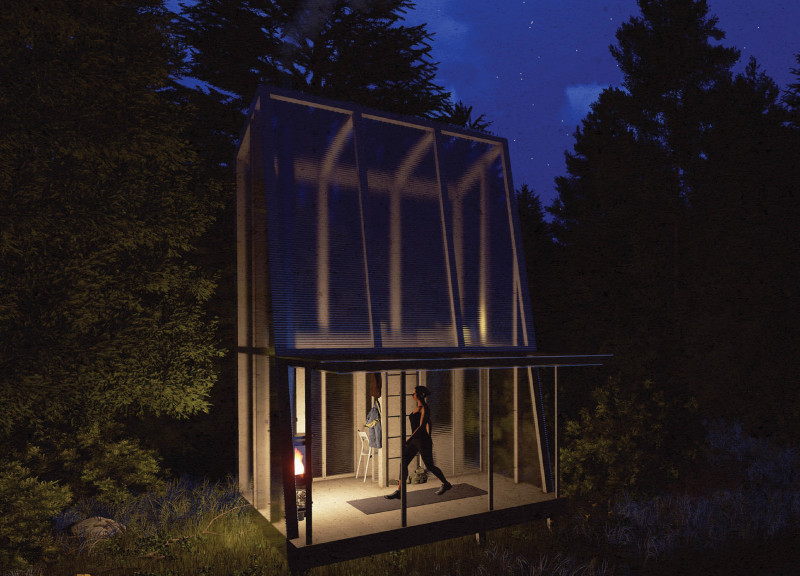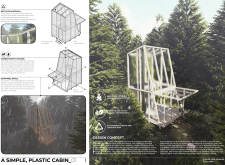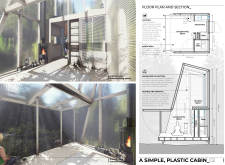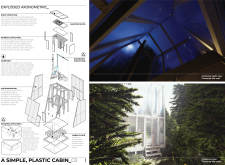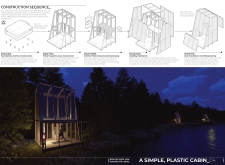5 key facts about this project
The cabin located near the Ozolini retreat is designed to harmonize with its surrounding nature. It serves as a peaceful place for meditation, living, and creativity. The design concept focuses on creating strong visual connections to the forest, allowing users to fully engage with their environment. This alignment is particularly beneficial for those practicing Vipassana meditation, which values awareness and presence.
Structural Form
The cabin features a vertical shape that reduces its impact on the forest floor. This thoughtful design choice helps to maintain the site's ecological balance. Using reclaimed and repurposed materials supports the project’s commitment to sustainability. The timber framework not only provides structural strength but also embodies a responsible approach to resource use.
Natural Light and Transparency
A key aspect of the cabin is its clear plastic cladding. This dual-layered, corrugated material allows daylight to fill the interior. The transparency of the cladding connects indoor and outdoor areas, inviting nature inside. Users can enjoy uninterrupted views of the landscape, creating an immersive experience that encourages interaction with the surroundings.
Functional Systems
Sustainability is central to the cabin’s functional systems. A rainwater collection system functions without the need for mechanical pressure, providing water through gravity flow. The wood-burning stove offers heat and cooking capabilities, reducing dependence on external utilities. These features illustrate a practical approach that supports an environmentally friendly lifestyle.
Interior Organization
The cabin's interior layout includes multifunctional spaces that adapt to various activities. Areas for meditation, living, and storage are designed to support a fluid lifestyle. This organization promotes a setting conducive to reflection and engagement with nature, allowing users to feel at ease in their environment.
As light filters through the cladding, it creates a shifting interplay of illumination inside the cabin. This changing light enhances the connection to the outdoor landscape throughout the day, offering a unique experience that evolves with the environment.


